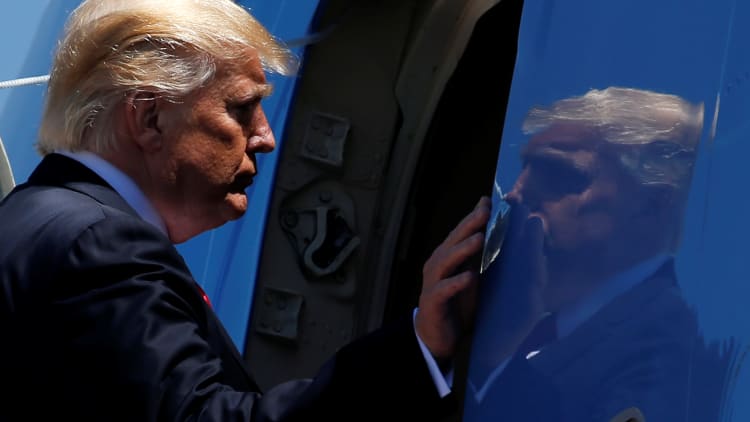As president, Donald Trump can legally share classified information when he wants.
But even a legal reveal of sensitive information can have consequences for the United States.
Trump reportedly shared highly classified information with key Russian diplomats during a closed-door meeting last week, according to The Washington Post and others. Trump tweeted Tuesday that he did give the Russians information for counterterrorism purposes, noting that he has the "absolute right" to do so. The president neither confirmed nor denied whether the information he revealed was classified.
After the report, many Republican lawmakers — and even some of Trump's Democratic critics — acknowledged that the president can share sensitive data without facing criminal punishment. The commander in chief holds special protections in that regard.

If Trump legally shared classified information with top Russians, however, it could still threaten intelligence gathering and the ability to stop potential threats, experts said Tuesday.
"He cannot just go ahead and reveal classified information without creating some huge problems within the intelligence community in terms of gathering that kind of information," former CIA Director and Defense Secretary Leon Panetta told CNN on Tuesday morning. "He cannot just say whatever the hell he wants and expect it doesn't carry consequences."
In responding to The Washington Post report Monday, the White House repeatedly noted that Trump did not reveal intelligence sources and methods. The Post did not report that Trump shared sources or methods, and withheld some details of the meeting because it could potentially put intelligence sources at risk.
Trump insists that he shared information partly because he wants "Russia to greatly step up their fight against ISIS and terrorism." Still, revealing sensitive information to Russia — a power widely believed to have meddled in Western elections — could alienate U.S. allies, Panetta and retired Navy Adm. James Stavridis both said Tuesday.
"Our allies will react very badly to this. ... It's just going to continue to affect us going forward," Stavridis told MSNBC on Tuesday.
A classified disclosure to top Russian officials would violate "all norms as far as dealing with intelligence partners," Carrie Cordero, a former national security lawyer at the Justice Department, told MSNBC.
Stavridis noted that allies may now think about whether Trump will tweet sensitive information or pass it to Russia before they share the data with the United States.
It may not take long for those effects to start. On Tuesday, The Associated Press reported that a senior European official said his country may stop sharing intelligence with the U.S. if Trump gave classified information to Russian diplomats.
National security advisor H.R. McMaster said Tuesday that he does not think Trump's conversation will disrupt intelligence sharing or relationships with allies.


